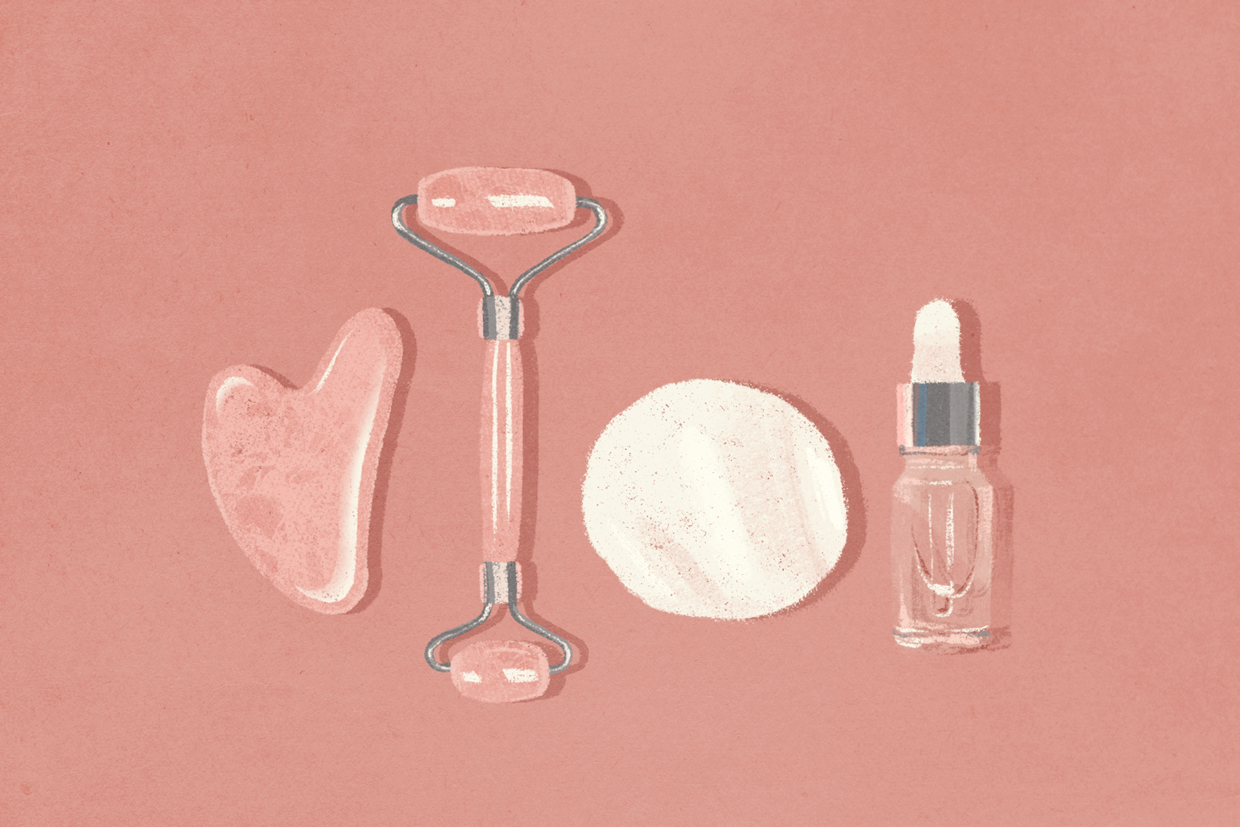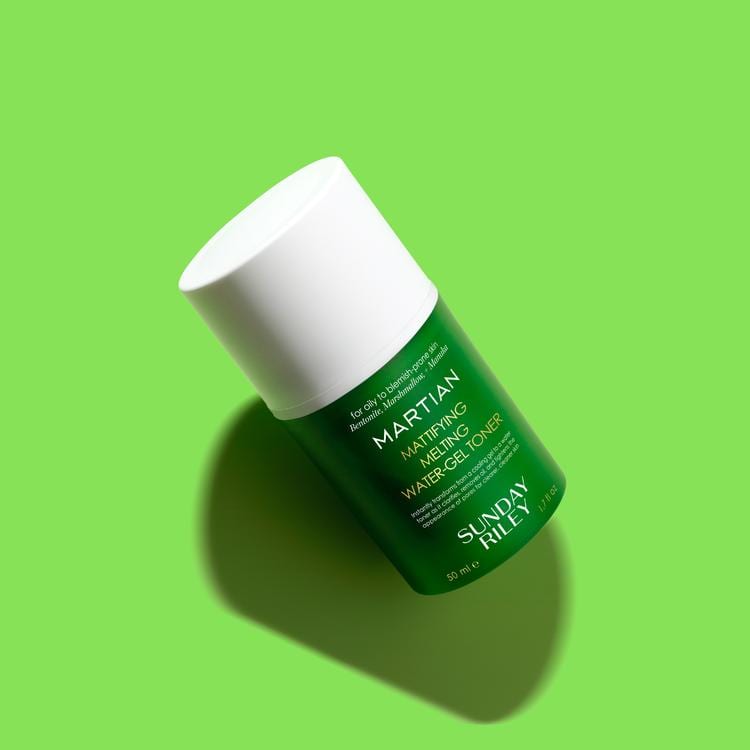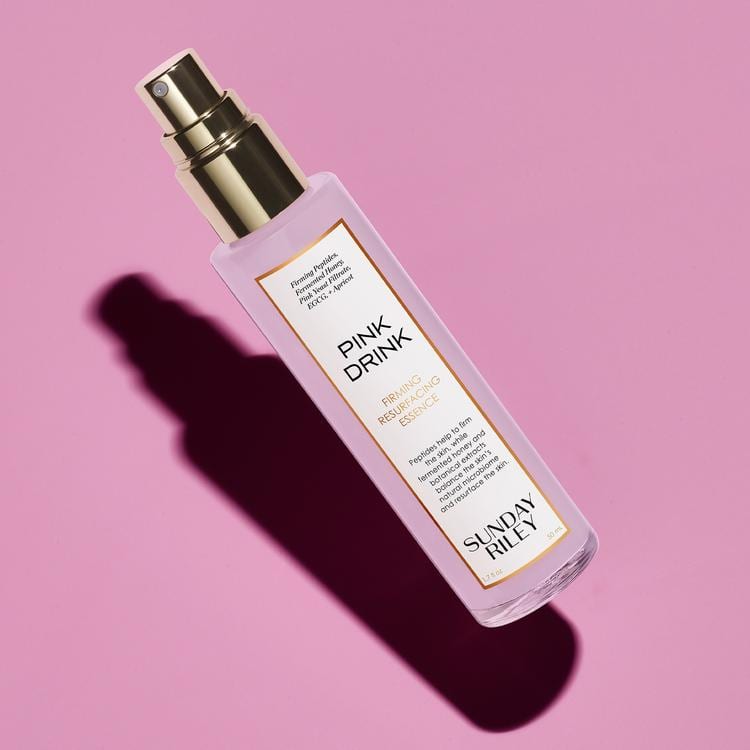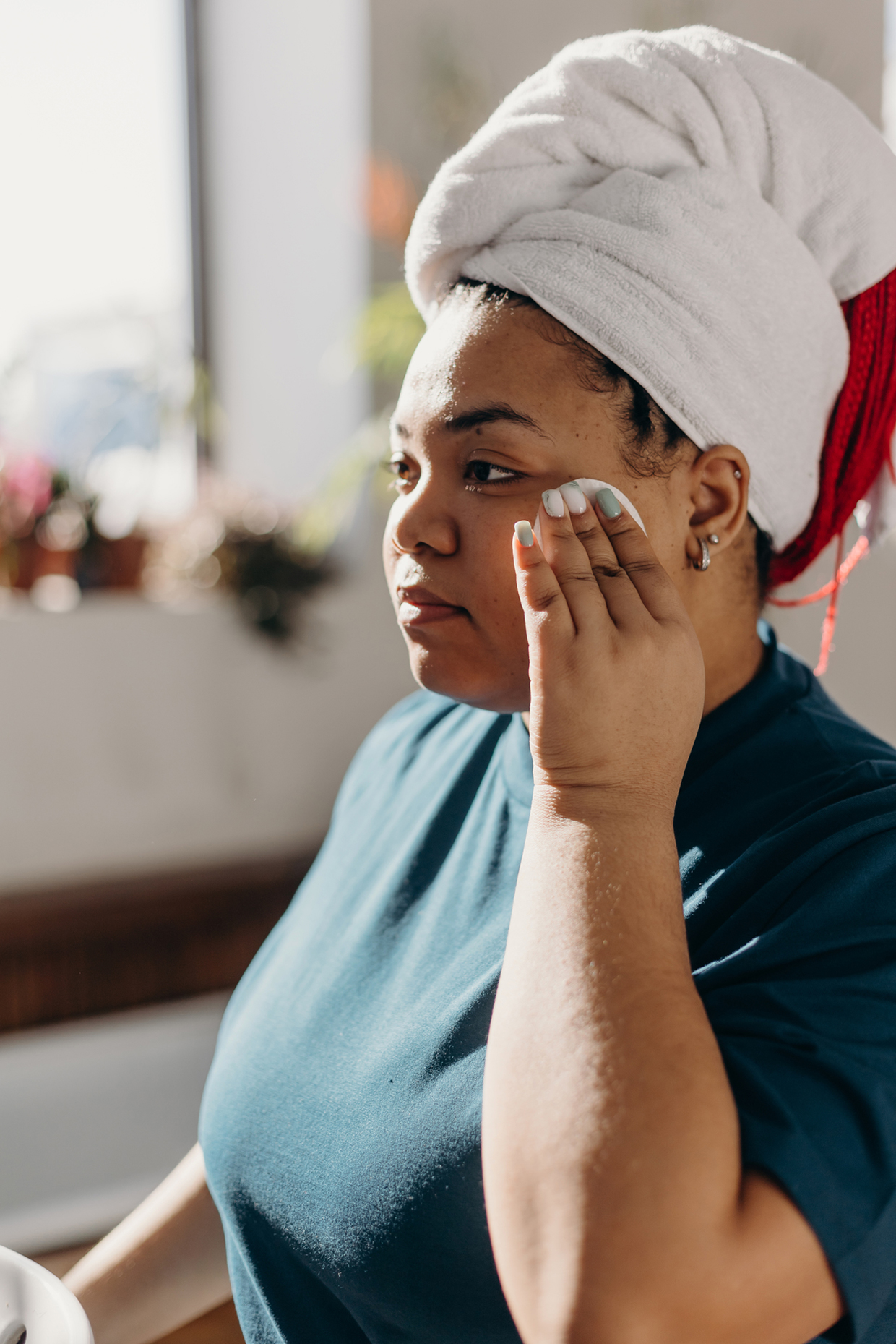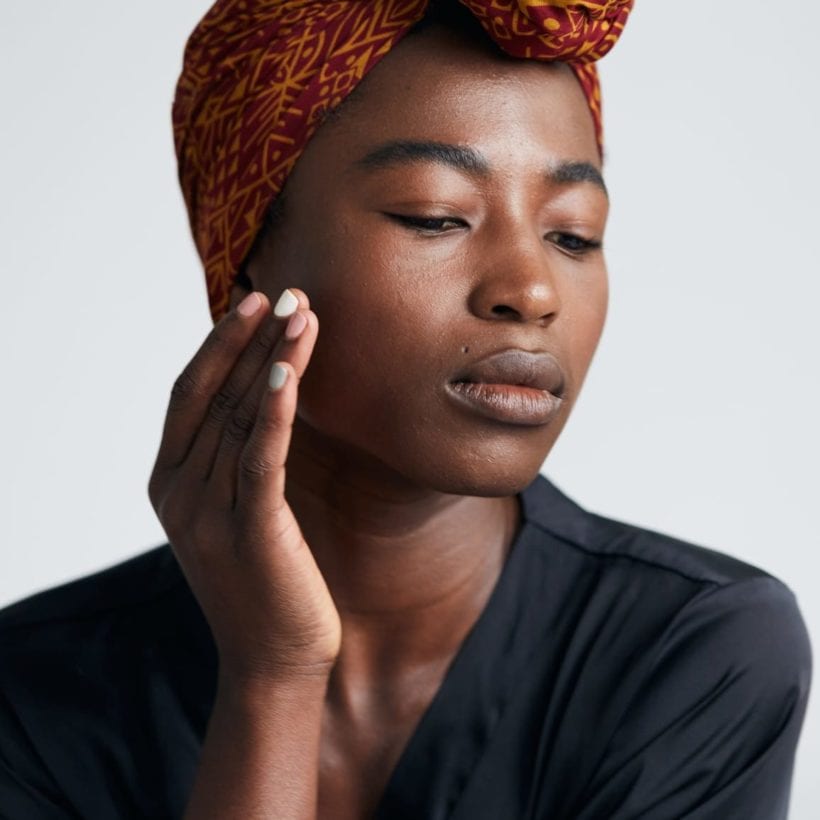To tone or not to tone, that is the question. Toners are one of the first skincare products that so many of us use — think back to your teenage years and how slapping on toner was a skincare ritual. Yet, a great, long-standing debate exists around them, asking if they are indispensable in the first place.
While many say to incorporate a toner into your routine, others are dead set on the fact that they do little for the skin. Curious to know if the post-cleansing step is worth it or not? You’re not alone. Here’s everything to know about them and if they deserve a home, or not, in your skincare regimen.
Meet the Experts
Dr. Marina Peredo, a board-certified dermatologist in Smithtown, New York.
Dr. Scott Paviol, a board-certified dermatologist in Charlotte, NC.
Karen Fernandez, a lead aesthetician at SkinSpirit.
Ildi Pekar, a celebrity esthetician.
What is toner?
In short, toners are a secondary cleansing product (in liquid form) that dries down on the skin and doesn’t require removal. Although originally toners were essentially astringents (they had high alcohol levels), they have evolved ten-fold to be gentler, pH-balanced, and formulated with good-for-your-skin ingredients. Karen Fernandez, a lead aesthetician at SkinSpirit, says the purpose of a toner is to give the skin a deeper clean or deliver essential, corrective active ingredients. “It’s a supplemental cleansing product in a liquid base that dries on the skin and does not need removal,” she adds.
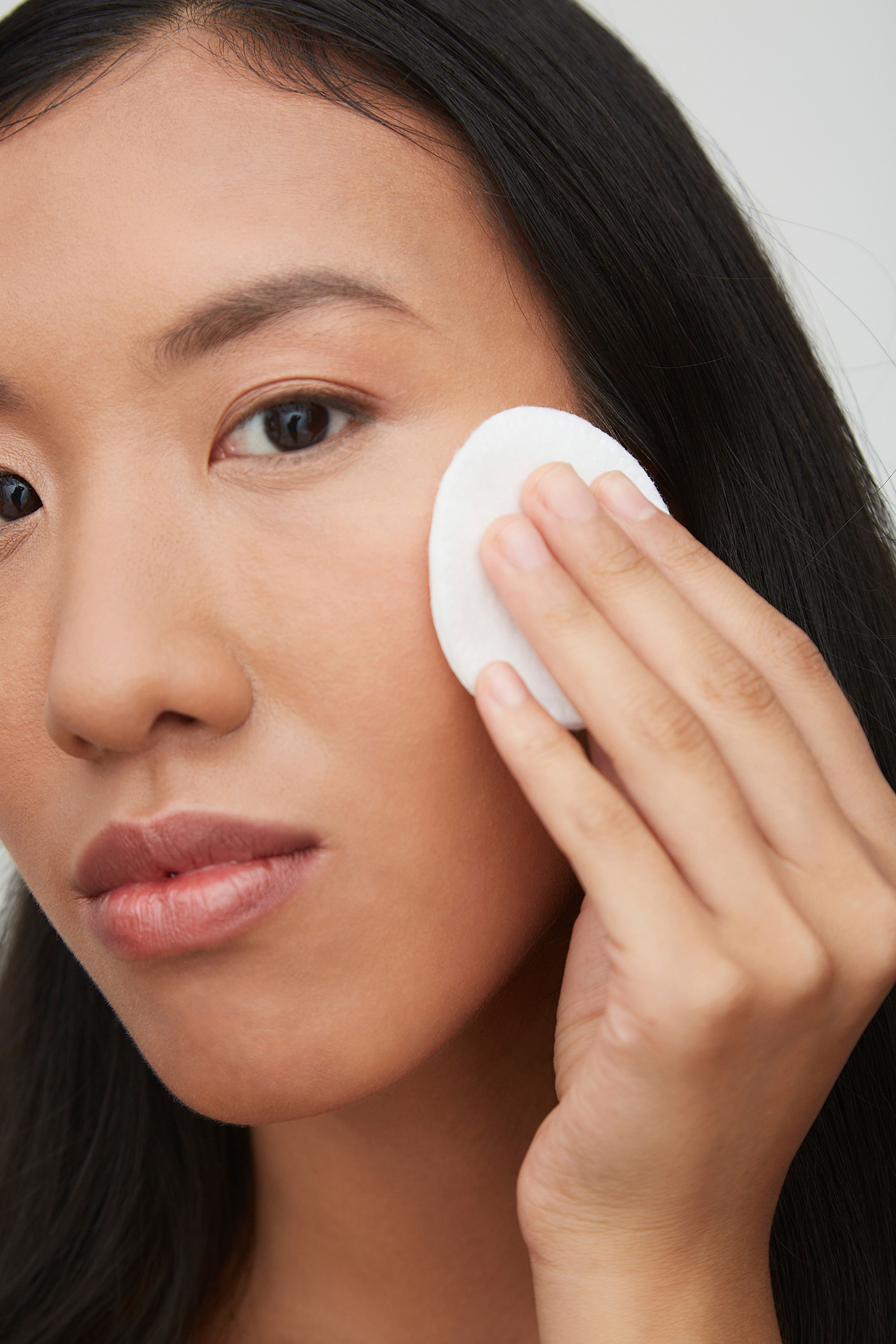
Celebrity esthetician Ildi Pekar calls toners a vital part of the skincare routine and something that can benefit everyone. “We know that cleansing our skin is necessary, and cleansing and toning should go hand in hand. However, after cleansing, the skin’s pH can become off-balanced, so you need a toner to even this out and avoid a lack of or overproduction of natural oils,” she explains. “Toner improves and maintains skin health, normalizes oil production, removes excess oil and superficial impurities, and refreshes the skin — it acts as a bridge between your cleanser, serum, and moisturizer, as it can accelerate product absorption.”
How do I pick the right toner for my skin?
With so many different toners available these days, it seems like there’s that perfect match for every skin type and need. Although toners tend to be ideal for those with oily or acne-prone skin, they’re a great way to give the skin an extra bit of cleansing after wearing makeup to remove any lingering product thoroughly, says Dr. Marina Peredo, a board-certified dermatologist in Smithtown, New York.
Some toners, like Paula’s Choice 2% BHA Liquid Exfoliant, exfoliate dead skin with alpha hydroxy and beta hydroxy acids to help fight breakouts or treat pigmentation. There are also those with sebum-reducing ingredients, like Sunday Riley Martian Mattifying Melting Water-Gel Toner, to help keep the skin matte and oil production under control. Others, such as Temptu SkinPrep Airbrush BHA Exfoliating & Hydrating Toner, act as a skin prep. And even hydrating, anti-aging formulas, like Sunday Riley Pink Drink Firming Resurfacing Essence and those with ceramides and hyaluronic acid, work as a tall drink of water for thirsty skin.
pH-balanced toners are critical in the toner game, which allows the skin’s balance to remain at an optimal level without stripping away the protective skin barrier layer.
Are they really necessary?
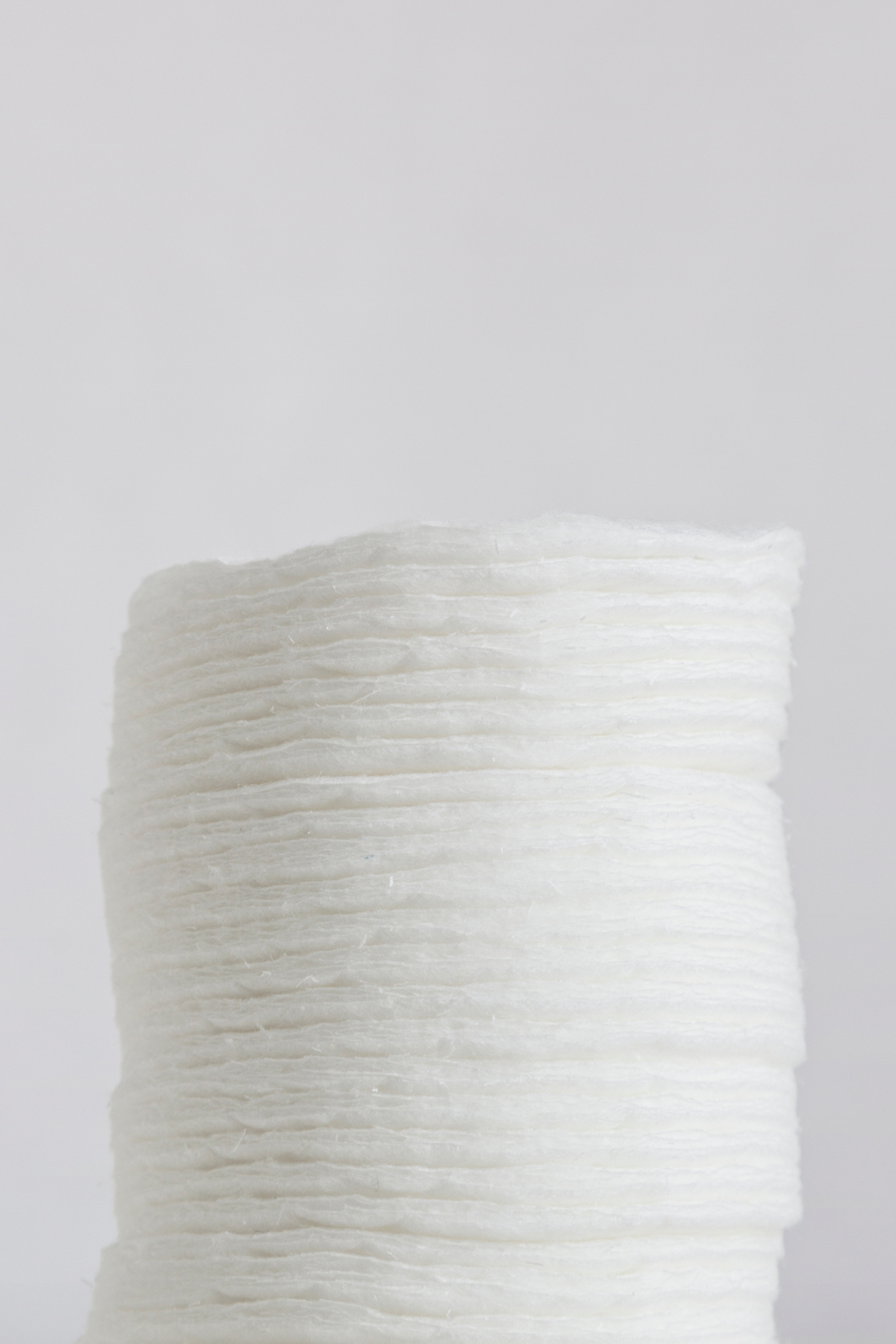
Simply put, it depends on your skin type since toners provide many benefits. “They can serve multiple purposes depending on the type of toner you’re using,” Dr. Scott Paviol, a board-certified dermatologist in Charlotte, NC, says. Need extra exfoliation? Or a dose of hydration? There’s a toner for that. Plus, if you wear heavy makeup and sunscreen, using a toner will help add another cleansing element to the skin. And as far as the claim some people make saying a toner is an extra step in a skincare routine, it takes less than one minute (or less) to apply, so it’s not the time factor that’s really an issue; it’s whether you feel your skin can benefit from one or not.
If you’re going to use a toner, especially if you have rosacea– or acne-prone skin or hyperpigmentation, there are a few things to look for in a product to ensure that it’s the right fit for your skin so you’ll reap the benefits:
- Always read the ingredient label. This way, you know what is in your toner, so you can find one that’s most compatible with your skin’s needs.
- Steer clear of sulfates in toners. They don’t provide any benefits besides allowing the product to foam —however, some toners ‘sneak’ in sodium laureth sulfates, which can dry out the complexion.
- If your skin needs hydration, opt for a toner with fatty alcohols, like cetyl or stearyl. Dr. Paviol says that these are emollients that help moisturizer the skin. The idea is to refresh the skin and restore its natural moisture balance, not strip it.
- Oily skin types should look for formulas with ingredients including salicylic acid and witch hazel, which Dr. Peredo says help with breakouts. “For dry skin types, toners with glycerin or hyaluronic acid will help hydrate the skin. If you have sensitive skin, toners with aloe vera or chamomile can help soothe the skin.”
- Don’t skimp on moisturizer after using a toner. Pekar suggests applying serums and moisturizers directly after toner allows those products to absorb better and create an enhanced hydrating experience.
Is there a right and wrong way to use toner?
Most skin experts, Fernandez included, recommend using a toner after nighttime cleansing to help remove built-up grime from the day. “This way also ensures deeply cleansed skin while you sleep and renew,” she adds.
As far as using a toner during the day goes, it can be a key element of your morning routine as long as it is applied after cleansing (on dry skin) and before any serums, creams, moisturizers, or sunscreens. Always apply it using a cotton ball and gently press the liquid into the skin rather than swiping it or rubbing it into the skin. With spray-on versions, mist the product directly onto the skin and gently tap it into the skin to allow it to absorb properly.
Dr. Paviol says that if the skin needs an acid-based toner for a deeper exfoliation, it’s important to replenish any lost moisture from toning with the addition of hydrating serums and moisturizers. “If not, the skin will over-compensate by producing more oil and leave you back at square one,” he says. The same issue can occur with more hydrating toners, too. “Toning is considered an additional step on a skincare routine, and it should not take the place of any product. Therefore, even hydrating toners can leave the skin feeling dry if there isn’t proper hydration after toning,” he explains.
We only recommend products we have independently researched, tested, and loved. If you purchase a product found through our links, Sunday Edit may earn an affiliate commission.
